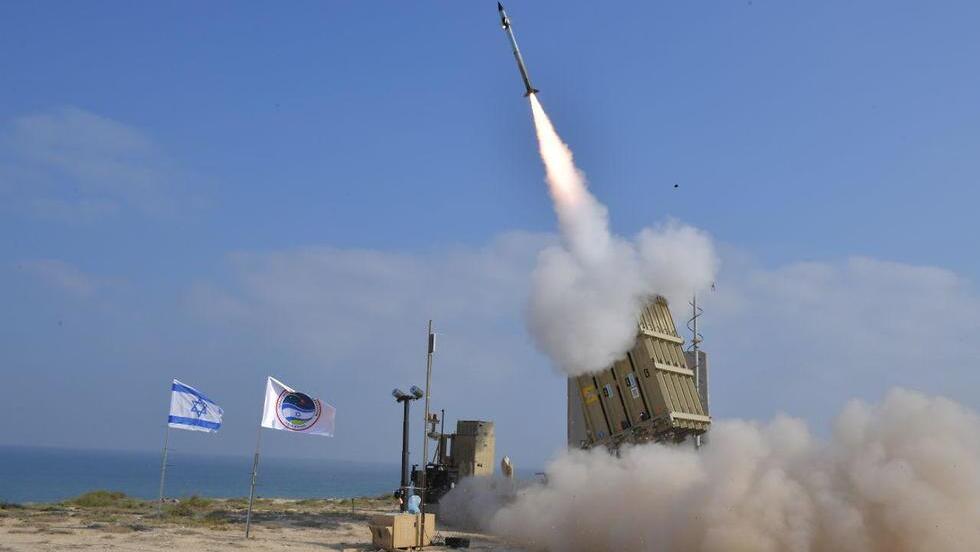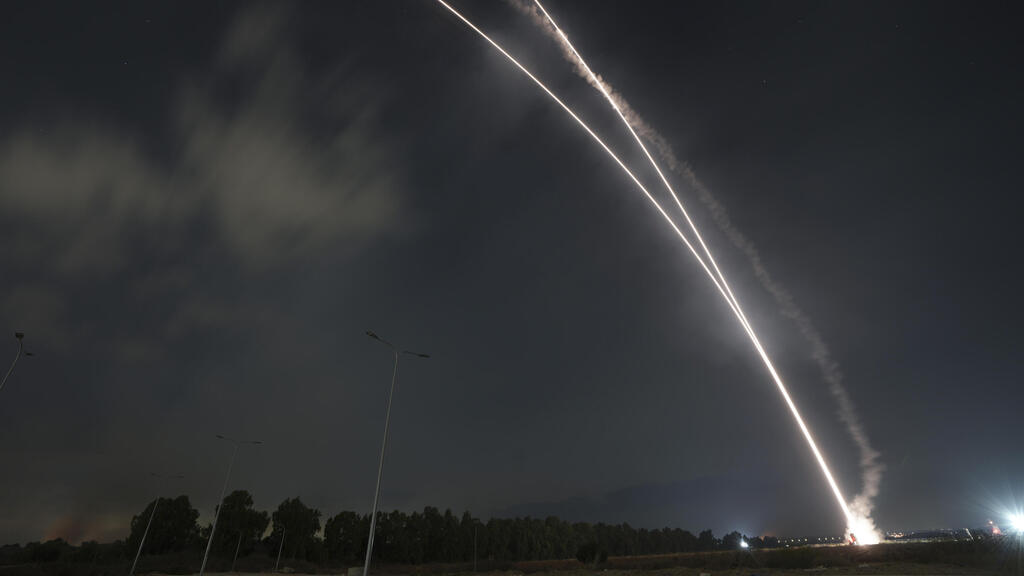Since the beginning of Israel's campaign against Islamic Jihad in Gaza, dubbed Operation Breaking Dawn, the Iron Dome has intercepted 95% of incoming rockets, representing the highest success rate for the defense system since it first became operational 10 years ago.
At least 400 rockets have been launched by terror groups in Gaza since Friday. Some landed within the Strip, and some were not intercepted due to being aimed at unpopulated areas. According to IDF data, 160 rockets which were projected to hit populated areas, were intercepted.
The Iron Dome first became operational during 2012 military campaign in Gaza, dubbed Operation Pillar of Defense, and had interception rate of 75%. The system's statistics improved during 2014 Gaza War, also known as Operation Protective Edge, shooting down 80% of rockets. During 2021 Operation Guardian of the Walls, the success rate has climbed to 90%.
“We’re prepared to defend Israel from north to south," the commander of the 137th Battalion in the Iron Dome unit said. "The manner in which we operate changes every time, we're study the enemy and prepare accordingly.”
Since the start of the latest campaign on Friday, the Iron Dome system has intercepted nearly 3,000 rockets, in addition to test runs conducted in Israel and the U.S. No other air defense system has gained a similar amount of experience, which allows to identify points for improvement in the system and to examine in real time past upgrades.
Every failed interception is investigated. The major improvement over the last year has been made to the system’s algorithms, as well as upgrades to Iron Dome's control system, the radar and the interceptor.
The reason for the higher success rate could be Islamic Jihad's inability to launch as many projectiles as its fellow Gazan terror group Hamas, which can fire dozens of rockets at the same time, making interception difficult.
The Israeli Air Force warns that should a military conflict break out in the north against Hezbollah, the army will have a hard time maintaining similar interception success rates due to the Lebanese terror group's advanced rocket launching capabilities, in which case a policy of "selective interception" will have to be applied.



